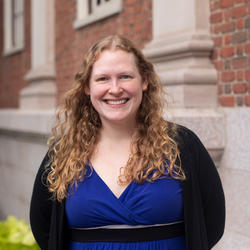Jennifer Prewitt-Freilino

Jennifer Prewitt-Freilino is currently serving as department head of History, Philosophy and the Social Sciences, building on a long line of institutional service as interim dean of Liberal Arts (2022–24), HPSS department head (2016–20), HPSS concentration coordinator (2011–16), and vice president of the Fulltime Faculty Association (2016–21).
Prewitt-Freilino is a social psychologist who has spent many years developing courses that encourage students to incorporate what they learn into their everyday life and work. She loves that she has spent her career working with students and getting them thinking about how what they create has ethical implications in shaping the larger cultural, material, political and physical environments in which we live. She has taught a range of both introductory (Intro to Psychology, Social Psychology) and seminar courses in psychology (for example, Psychology of Evil, Positive Psychology, Stereotypes and Prejudice, Gender and the Media, Self and Identity).
Prewitt-Freilino’s primary research explores the power of social identity and role norms generally (and gender and parental status in particular) to powerfully shape how we think about ourselves, behave and speak. Given how memberships in social groups and categories are a central part of people’s understanding of the self, her work has explored how threats to these identifications can have powerful implications for people’s thoughts, feelings and behavior. She has also investigated the gendering of language and its link to gender inequality, both in terms of larger language systems as well as how men and women speak in everyday life and how such speech differences may contribute to status hierarchies. She is currently exploring the experience of identity transitions, both in terms of subjective experience as well as the interpersonal, social and economic/political consequences of shifting from one social identity to another. Her work has been published in the Journal of Personality and Social Psychology, Self and Identity, Sex Roles, Group Processes and Intergroup Relations and the Journal of East Asian Studies.
In her free time, she likes to spend time with family, host gatherings, cook obscene amounts of delicious food, swim/kayak/soak up the beauty of nature, listen to fiction audiobook series, and knit.